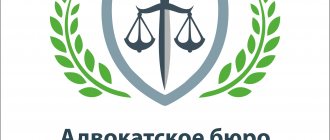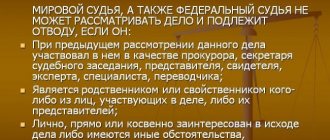Article 275 of the Criminal Code of the Russian Federation. Treason
High treason, that is, espionage committed by a citizen of the Russian Federation, the issuance to a foreign state, international or foreign organization or their representatives of information constituting a state secret, entrusted to a person or becoming known to him through his service, work, study or in other cases provided for by the legislation of the Russian Federation, or providing financial, logistical, consulting or other assistance to a foreign state, international or foreign organization or their representatives in activities directed against the security of the Russian Federation - is punishable by imprisonment for a term of twelve to twenty years with a fine of up to five hundred thousand rubles or in the amount of wages or other income of the convicted person for a period of up to three years or without it and with restriction of freedom for a period of up to two years. Note. A person who has committed crimes provided for in this article, as well as articles 276 and 278 of this Code, is exempt from criminal liability if he, by voluntary and timely notification to the authorities or otherwise, contributed to the prevention of further damage to the interests of the Russian Federation and if his actions do not contain other elements crimes.
Article 276 of the Criminal Code of the Russian Federation. Espionage
Transfer, collection, theft or storage for the purpose of transfer to a foreign state, international or foreign organization or their representatives of information constituting a state secret, as well as transfer or collection on the instructions of foreign intelligence or a person acting in its interests, other information for use against security Russian Federation, that is, espionage, if these acts were committed by a foreign citizen or a stateless person, are punishable by imprisonment for a term of ten to twenty years.
Article 280 of the Criminal Code of the Russian Federation. Public calls for extremist activities
- Public calls for extremist activities are punishable by a fine in the amount of up to three hundred thousand rubles or in the amount of the wages or other income of the convicted person for a period of up to two years, or by forced labor for a period of up to three years, or by arrest for a term of four to six months, or imprisonment for a term of up to three years with deprivation of the right to hold certain positions or engage in certain activities for the same period.
- The same acts committed using the media are punishable by forced labor for a term of up to five years with deprivation of the right to hold certain positions or engage in certain activities for a term of up to three years or without it, or imprisonment for a term of up to five years with deprivation of the right to hold certain positions or engage in certain activities for a period of up to three years.
Commentary to Art. 280 Criminal Code
1. In Art. 1 of the Federal Law of July 25, 2002 N 114-FZ “On Combating Extremist Activities” provides a wide list of acts that fall under the concept of extremist activity (extremism). Among other things, extremism includes a violent change in the foundations of the constitutional system and violation of the integrity of the Russian Federation; public justification of terrorism and other terrorist activities; inciting social, racial, national or religious hatred; obstruction of the legitimate activities of government agencies, propaganda and public display of Nazi paraphernalia or symbols; mass distribution of obviously extremist materials, etc.
2. The objective side is expressed in the form of action: public calls to carry out extremist activities. Public appeals are an active appeal (campaign) to citizens in oral, written or other form (using technical means, including the Internet) to influence them in order to incline them to extremist actions. Calls can be expressed in speeches at rallies, meetings, other public events, in the form of extremist slogans during demonstrations, marches, etc. These actions using the media, information and telecommunication networks, including the Internet (Part 2) , form a qualified crime. On the objective signs of a crime, also see paragraph 4 of the Resolution of the Plenum of the Supreme Court of the Russian Federation of June 28, 2011 No. 11 “On judicial practice in criminal cases involving crimes of an extremist nature.”
3. The crime is considered completed from the moment of public proclamation (dissemination) of at least one appeal, regardless of the achievement of the set goals.
Article 281 of the Criminal Code of the Russian Federation. Sabotage
- Committing an explosion, arson or other actions aimed at destroying or damaging enterprises, structures, transport infrastructure and vehicles, communications, life support facilities for the population in order to undermine the economic security and defense capability of the Russian Federation - is punishable by imprisonment for a term of ten to fifteen years.
- The same acts: a) committed by an organized group; b) entailing the infliction of significant property damage or the onset of other grave consequences - are punishable by imprisonment for a term of twelve to twenty years.
- Acts provided for in parts one or two of this article, if they entailed the intentional infliction of death on a person, are punishable by imprisonment for a term of fifteen to twenty years or life imprisonment.
Commentary on Article 279 of the Criminal Code of the Russian Federation
1. The organization of an armed rebellion should be understood as various actions that have one goal: to provoke an armed uprising against the legitimate government (conspiracy of leaders; development of plans; preparation of program documents, appeals; appropriate propaganda; recruitment of participants and supplying them with weapons, military equipment, etc. .).
Active participation is expressed in the commission of actions together with other participants in an armed rebellion aimed at realizing its goals.
2. The sign of being armed does not mean that all participants in the rebellion have weapons; it is enough that at least some of the rebels have it. For weapons, see commentary to Art. 222 of the Criminal Code, on armament - commentary to Art. 209 of the Criminal Code.
3. The question of the moment of completion of the crime should be resolved differentially depending on its type. The organization of an armed rebellion is considered completed from the moment of the actual armed action of the rebels; active participation in an armed rebellion - from the moment a participant in the rebellion commits actions using or attempting to use weapons aimed at achieving the goals of the armed rebellion.
4. The subjective side of the crime is characterized by direct intent and the presence of one of three goals:
1) overthrow of the constitutional order, i.e. abolition by force of the foundations of the constitutional system enshrined in Chapter. 1 of the Constitution of the Russian Federation, the elimination of the rights and freedoms proclaimed in Chapter. 2 of the Constitution of the Russian Federation, and the establishment of a social and state structure that does not comply with the Constitution of the Russian Federation;
2) forcible change of the constitutional system, which means the replacement of existing constitutional institutions of power with institutions that are not provided for by the Constitution of the Russian Federation;
3) violation of the territorial integrity of the Russian Federation, i.e. violation of the principles of the federal structure enshrined in Chapter. 3 of the Constitution of the Russian Federation, the separation of part of the territory and the proclamation of its independence from the Russian Federation.
5. The subject of the crime is a person who has reached the age of 16 years. When a crime is committed in the form of organizing an armed rebellion, its organizers and leaders are subject to liability, in the form of active participation in an armed rebellion - persons who directly committed violent acts with the use or attempt to use weapons to achieve the goals of the armed rebellion.
Article 282 of the Criminal Code of the Russian Federation. Inciting hatred or enmity, as well as humiliation of human dignity
- Actions aimed at inciting hatred or enmity, as well as humiliating the dignity of a person or group of persons on the basis of gender, race, nationality, language, origin, attitude to religion, as well as belonging to any social group, committed publicly or using means mass media - shall be punishable by a fine in the amount of one hundred thousand to three hundred thousand rubles, or in the amount of the wages or other income of the convicted person for a period of one to two years, or by deprivation of the right to hold certain positions or engage in certain activities for a term of up to three years, or compulsory labor for a term of up to three hundred and sixty hours, or correctional labor for a term of up to one year, or forced labor for a term of up to two years, or imprisonment for the same term.
- The same acts committed: a) with the use of violence or the threat of its use; b) by a person using his official position; c) by an organized group - shall be punishable by a fine in the amount of one hundred thousand to five hundred thousand rubles, or in the amount of the wages or other income of the convicted person for a period of one to three years, or by deprivation of the right to hold certain positions or engage in certain activities for a period of up to five years. , or compulsory labor for a term of up to four hundred eighty hours, or correctional labor for a term of one to two years, or forced labor for a term of up to five years, or imprisonment for the same term.
Corpus delicti
D.N. Ushakov’s explanatory dictionary reveals the term as an armed uprising that arose as a result of a conspiracy against state power. In Italian it has a beautiful name "brolio".
Taking an excursion into the last century, you can remember 1917. The revolutionary movement that overthrew the tsarist regime of the Russian Empire is a good illustration of such an event. If similar acts occurred today, V.I. Lenin and most of the Bolsheviks joined the ranks of convicted rebels. Russia has not seen any real revolutionary movements since the 1993 putsch.
But recently, in the countries of the former CIS and other countries of the European part of the continent, revolutionary events are constantly taking place, reflected by the media. Expressing hope for a peaceful solution to vital issues in Russia, it would be useful to get an idea of the settlement of “brolio” in Russian.
What does Russian law understand by armed rebellion? It is considered to be a numerous organized uprising of people who have weapons, an attack against the legitimate state apparatus, the purpose of which is defined as changing the constitutional order or violating the territorial unity of the country.
Like other crimes, this offense includes an object (public good), an objective side (external manifestations of the event), a subject (the person performing it) and a subjective side (motives, goals, understanding of the events taking place around).
The good against which the attack is directed is the state system of the Russian Federation and its territorial integrity. In addition to the specified objects, their objects are the life and health of citizens. During a riot, they may suffer when criminals commit illegal actions.
The external manifestation of the offense is expressed in two alternative acts of the attackers:
- Organizations of the uprising.
- Active participation.
What is meant by the first paragraph? This is a set of actions that is associated with the preparation of plans and documents that constitute the platform of a new device; preliminary conspiracy of ideological masterminds; distribution of attacker roles; appeal to the masses; speaking with calls for rebellion, supplying equipment to the rebels; citizen involvement; planning government institutions in the acquired territory, as well as transferring funds for the implementation of all of the above. These single acts have one goal - to incite the masses of people to revolt with the use of weapons against the legitimate government of the country, in other words, to start a revolution.
In Art. 279 of the Criminal Code of the Russian Federation, active participation implies the commission of certain actions to forcibly seize power, aimed at its overthrow. Criminals seek to disrupt the well-being of the state using weapons.
Manifestations that are regarded as the described violation:
- Seizure of the locations of the main bodies of the state that govern the country with the use of violence against the employees located in them.
- Taking possession of communication devices, train stations, airports, highways, disrupting their activities.
- Providing resistance with the use of weapons to representatives of law enforcement.
- Agitation within the population, with calls for the overthrow of power structures.
- Intelligence data to implement revolutionary plans.
- Proclamation by violators of the law of any territorial part of a sovereign state as independent and disobedience to federal authorities.
- Supply of weapons, ammunition, equipment for the crowd.
It is suggested that even providing food and other various benefits to the rebels is also considered a manifestation of activity.
The subjective side is characterized by direct intent, that is, both the organizer and the active performer clearly understand and understand what they are doing and want the results of their illegal activities to occur.
Attackers must pursue one of the following goals:
- the overthrow of the existing constitutional system, the abolition of the rights and freedoms of citizens and the subsequent establishment of an uprising of state institutions of other forms that do not correspond to the basic law of the country;
- establishment of a new government system, change of the country's leader;
- proclamation of independence of a certain territory of the country, with the aim of establishing independent governance in this territory, not controlled by federal authorities.
The subject of this offense is an individual. By the time he commits a crime, a legally competent person must be 16 years old. A criminal case against a younger person, if he is brought under this provision of the Criminal Code of the Russian Federation, will be terminated, but the minor rebel will be held accountable for other unlawful actions committed by him in accordance with the code (an example could be liability for murder).
Article 279 of the Criminal Code of the Russian Federation contains the formal and material elements of the crime. For each type of revolutionary, the moment at which he ends his illegal acts is different. Thus, for an active participant, a violation of the law can be considered committed from the moment he performs acts pursuing the goals of the uprising.
The organizer is brought to justice by the investigative authorities only after the performance has taken place, from the moment the rioters actually leave. They must not only carry an arsenal of weapons, but also use them. In case of an unrealized offense, when the organizer did everything to implement it, but did not actually lead to a riot, the organizer will only be responsible for the preparation.
Article 282.1 of the Criminal Code of the Russian Federation. Organization of an extremist community
- Creation of an extremist community, that is, an organized group of persons for preparing or committing crimes of an extremist nature, as well as the leadership of such an extremist community, its part or structural units included in such a community, as well as the creation of an association of organizers, leaders or other representatives of parts or structural units of such a community in order to develop plans and (or) conditions for committing crimes of an extremist nature - is punishable by a fine in the amount of up to two hundred thousand rubles or in the amount of the wages or other income of the convicted person for a period of up to eighteen months, or by forced labor for a term of up to four years with restriction of freedom for a term of one to two years, or imprisonment for a term of up to four years with deprivation of the right to hold certain positions or engage in certain activities for a term of up to ten years and with restriction of freedom for a term of one to two years.
- Participation in an extremist community is punishable by a fine in the amount of up to forty thousand rubles or in the amount of the wages or other income of the convicted person for a period of up to three months, or by forced labor for a period of up to two years with deprivation of the right to hold certain positions or engage in certain activities for a period of up to three. years or without it and with restriction of freedom for a term of up to one year, or imprisonment for a term of up to two years with deprivation of the right to hold certain positions or engage in certain activities for a term of up to five years or without it and with restriction of freedom for a term of up to one year.
- Acts provided for in parts one or two of this article, committed by a person using his official position, are punishable by a fine in the amount of one hundred thousand to three hundred thousand rubles or in the amount of the wages or other income of the convicted person for a period of one to two years, or forced works for a term of up to five years with deprivation of the right to hold certain positions or engage in certain activities for a term of up to three years or without it and with restriction of freedom for a term of one to two years, or imprisonment for a term of up to six years with deprivation of the right to occupy certain positions or engage in certain activities for a period of up to ten years or without it and with restriction of freedom for a period of one to two years. Notes. 1. A person who voluntarily ceased participation in the activities of a public or religious association or other organization in respect of which the court made a decision on liquidation or prohibition of activities that has entered into legal force in connection with the implementation of extremist activities, shall be exempt from criminal liability if his actions do not contain other corpus delicti. 2. In this Code, crimes of an extremist nature are understood to mean crimes committed on the grounds of political, ideological, racial, national or religious hatred or enmity, or on grounds of hatred or enmity against any social group, provided for by the relevant articles of the Special Part of this Code and paragraph “e” of part one of Article 63 of this Code.
Second commentary to Art. 280 of the Criminal Code of the Russian Federation
1. The object of the crime is social relations and interests related to the implementation of the constitutional prohibition of inciting racial, national or religious hatred.
2. The objective side of the crime is characterized by actions - public calls for extremist activities.
The concept of extremist activity (extremism) is given in the Federal Law “On Combating Extremist Activities” (as amended by Federal Law No. 211-FZ dated July 24, 2007).
Extremist activities can be carried out with the help of extremist materials. They are understood as documents intended for publication or information on other media that call for the implementation of extremist activities or substantiate or justify the need for such activities.
Calls to carry out extremist activities mean inflammatory actions, verbal or written, aimed at achieving a specified goal. These calls must be public, which means that they are made directly in the presence of third parties or (if they are written) with the expectation that other persons will become familiar with them later (for example, by sticking posters or slogans with relevant content). The expectation of becoming familiar with the content of other people's appeals in the future may also be characteristic of oral appeals through the use of, for example, tape recordings.
3. The subject of the crime is a person who has reached the age of 16.
4. The subjective side of the crime is characterized by direct intent.
5. Part 2 art. 280 of the Criminal Code establishes increased liability for public calls made using the media. They are understood as appeals published in the press, using radio, television and other media.
Article 282.2 of the Criminal Code of the Russian Federation. Organization of the activities of an extremist organization
- Organizing the activities of a public or religious association or other organization in respect of which the court has made a decision to liquidate or prohibit activities that have entered into legal force in connection with the implementation of extremist activities - is punishable by a fine in the amount of one hundred thousand to three hundred thousand rubles or in the amount of wages or other income of the convicted person for a period of one to two years, or forced labor for a term of up to three years with or without restriction of freedom for a term of up to two years, or arrest for a term of four to six months, or imprisonment for a term of up to three years with deprivation of the right to hold certain positions or engage in certain activities for a term of up to ten years or without it and with restriction of freedom for a term of up to two years or without it.
- Participation in the activities of a public or religious association or other organization in respect of which the court has made a decision on liquidation or prohibition of activities that has entered into legal force in connection with the implementation of extremist activities is punishable by a fine in the amount of up to two hundred thousand rubles or in the amount of wages or other income. convicted for a period of up to eighteen months, or forced labor for a term of up to two years with or without restriction of freedom for a term of up to one year, or arrest for a term of up to four months, or imprisonment for a term of up to two years with deprivation of the right to hold certain positions, or engage in certain activities for a period of up to five years or without it and with restriction of freedom for a period of up to one year or without it. Note. A person who voluntarily ceased participation in the activities of a public or religious association or other organization in respect of which the court made a decision on liquidation or prohibition of activities that has entered into legal force in connection with the implementation of extremist activities, is exempt from criminal liability, unless his actions contain a different element. crimes.
Article 283 of the Criminal Code of the Russian Federation. Disclosure of state secrets
- Disclosure of information constituting a state secret by a person to whom it was entrusted or became known through service, work, study or in other cases provided for by the legislation of the Russian Federation, if this information has become available to other persons, in the absence of signs of crimes provided for in Articles 275 and 276 of this Code is punishable by arrest for a term of four to six months or imprisonment for a term of up to four years with or without deprivation of the right to hold certain positions or engage in certain activities for a term of up to three years.
- The same act, which through negligence entailed grave consequences, is punishable by imprisonment for a term of three to seven years with deprivation of the right to hold certain positions or engage in certain activities for a term of up to three years.
Article 283.1. Criminal Code of the Russian Federation Illegal acquisition of information constituting a state secret
- Obtaining information constituting a state secret by abduction, deception, blackmail, coercion, threat of violence or other illegal means (in the absence of signs of crimes provided for in Articles 275 and 276 of this Code) - is punishable by a fine in the amount of two hundred thousand to five hundred thousand rubles or in the amount of wages or other income of the convicted person for a period of one to three years, or by imprisonment for a term of up to four years.
- The same act if it:
a) committed by a group of persons;
b) committed with the use of violence;
c) resulted in grave consequences;
d) committed using special and other technical means intended for secretly obtaining information;
e) involves the dissemination of information constituting a state secret, or the movement of carriers of such information outside the Russian Federation - is punishable by imprisonment for a term of three to eight years.
Article 284 of the Criminal Code of the Russian Federation. Loss of documents containing state secrets
Violation by a person who has access to state secrets of the established rules for handling documents containing state secrets, as well as objects, information about which constitutes state secrets, if this resulted through negligence in their loss and the onset of grave consequences, is punishable by restriction of freedom for a term of up to three years. years, or arrest for a term of four to six months, or imprisonment for a term of up to three years with or without deprivation of the right to hold certain positions or engage in certain activities for a term of up to three years.
professional criminal lawyer
in Moscow.
Qualification problems
Much depends on the correct qualification of the actions of suspects: confirmation of the basis for holding them accountable;
the possibility of termination of criminal prosecution; type and amount of punishment, etc. Punishment for armed rebellion Art. 279 of the Criminal Code of the Russian Federation provides for imprisonment for up to 20 years. If you carefully look through the code, a similar punishment is provided for persons who have committed murder or an act of terrorism. The severity of punishment entails the desire of those perpetrating lawlessness to avoid punishment by all possible means. In order for the sentence passed by the court to stand and not be changed by a higher authority, the qualifications carried out by the investigative authorities must be correct.
First, we need to look at this point. The legislator clearly defined the active participant as the perpetrator of the crime. This means, logically, there must also be a passive participant. What to do with the qualification of his actions? If such a member of an illegal demonstration did not take part in acts of overthrowing or changing the constitutional order, and also reluctantly fought for the independence of a certain territory (he was just an extra), then he will be held responsible only for those offenses in which he took part. This could be carrying a weapon or participating in an illegal group.
The law directly provides for the responsibility of the organizer, therefore, when imputing, a reference to the General Part of the Criminal Code is not required. The activities of the organizer cannot be classified as incitement or complicity. The instigator in this offense is the performer, since he carries out calls for violence and the overthrow of the state system at the behest of another person - the organizer. These kinds of provocateurs are always found among the rioters; they support the militant mood of the masses.
When qualifying, special attention is paid to the additional object of encroachment. If the attackers attacked government or public figures, then what they did is qualified by Art. 277 Criminal Code. If there are victims whose activities are related to justice or the investigation, Art. 295. For the victims of the employees of the Ministry of Internal Affairs, the rebels will be prosecuted under Art. 317.
If bodily harm or murder occurs during an armed insurrection, those involved will be held accountable.
Acts committed by attackers will also be classified in aggregate in the following episodes:
- when the violent seizure of power continued in the form of revolutionary actions (278 CC);
- when mass riots escalated into an uprising (212 CC);
- when an illegal armed formation was formed, which became the center of the organizers of the revolt, the core of the participants in the rebellion (208 of the Criminal Code).
Damage to citizens' property that occurs during the rebels' performance will also entail holding others accountable for illegal actions directed against property.
Fortunately, the Russian reality is such that the investigative committee in practice encounters isolated cases of this kind of act, so there is no need to talk about the established judicial practice in criminal cases.




